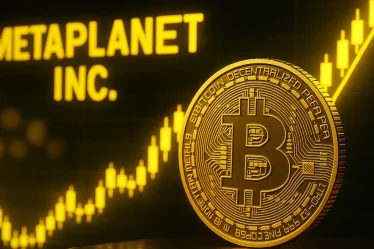
The landscape of cryptocurrency adoption has undergone a significant transformation in 2025, with institutional investors playing a pivotal role in this evolution. This shift is characterized by increased allocations, strategic partnerships, and a broader acceptance of digital assets within traditional financial frameworks.
Surge in Institutional Investment
Recent surveys indicate a substantial uptick in institutional engagement with cryptocurrencies. A global survey conducted by the Alternative Investment Management Association (AIMA) and PwC revealed that 55% of hedge funds have now invested in cryptocurrencies, marking an increase from 47% the previous year. On average, these funds allocate 7% of their assets to digital currencies, though many maintain investments below 2%. This growing interest is partly attributed to the rising cryptocurrency prices in 2025 and favorable regulatory developments in the United States.
Further supporting this trend, a report by Coinbase and EY-Parthenon highlighted that 83% of institutional investors plan to increase their crypto allocations in 2025. Notably, nearly three-quarters of these firms hold cryptocurrencies beyond Bitcoin and Ethereum, with a significant majority aiming to boost their crypto holdings to 5% or more of their portfolios. This strategic shift underscores the perception of cryptocurrencies as viable assets capable of generating attractive risk-adjusted returns over the next three years.
Strategic Partnerships and Market Expansion
The year has also witnessed strategic collaborations aimed at enhancing digital payment solutions for institutional clients. Citigroup’s partnership with cryptocurrency exchange Coinbase exemplifies this trend. This alliance is designed to bolster digital payment capabilities, enabling users to seamlessly deposit and withdraw fiat currency through Coinbase. Such initiatives reflect a concerted effort by traditional financial institutions to modernize payment operations and integrate stablecoins into their services.
In the United Kingdom, cryptocurrency investment firm KR1 announced plans to transition its stock listing from the Aquis Stock Exchange to the main market of the London Stock Exchange. This move aims to increase the firm’s visibility and attract a broader investor base, signaling growing institutional interest in blockchain technologies and the UK’s ambition to establish itself as a key player in the global crypto market.
Global Adoption and Regulatory Developments
On a global scale, India has emerged as a leader in cryptocurrency adoption for the second consecutive year. According to the 2025 Global Crypto Adoption Index by Chainalysis, India ranked first across all key metrics, including retail and institutional use, activity on centralized platforms, and engagement in decentralized finance (DeFi). This widespread adoption underscores India’s significant role in driving the Asia-Pacific region’s status as the fastest-growing hub of grassroots crypto activity.
In the United States, regulatory clarity has played a crucial role in facilitating institutional adoption. The passage of the GENIUS Act in July 2025 established federal guidelines for stablecoins, providing a framework that has boosted their adoption. Additionally, the pro-crypto stance of the current administration has contributed to heightened deal activity in the digital asset space, fostering an environment conducive to institutional investment.
Conclusion
The year 2025 marks a pivotal moment in the institutional adoption of cryptocurrencies. Increased investment allocations, strategic partnerships, and favorable regulatory developments have collectively contributed to the integration of digital assets into traditional financial systems. As institutions continue to recognize the potential of cryptocurrencies, the financial landscape is poised for further transformation, bridging the gap between conventional finance and the burgeoning world of digital assets.



